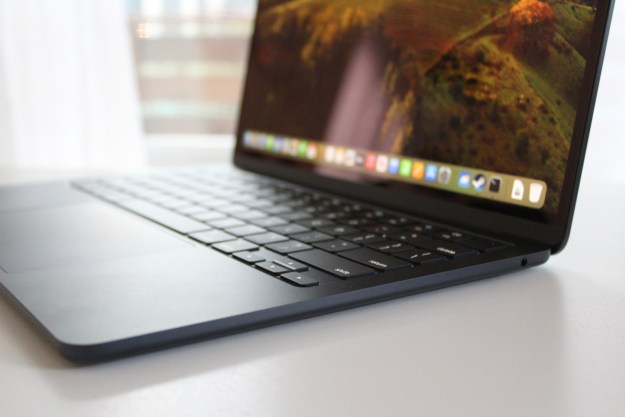
Early test results for what seems likely to be the next MacBook Pro suggest that it will be the most powerful yet released. The “MacBookPro14,3” which appeared on the GeekBench results website packs 32GB of RAM alongside a powerful Core i7-8750H processor which has six cores and up to 12 threads.
Of all of the MacBook’s Apple currently has on sale, its Pro models (without the touch bar) are the ones we’d recommend if you’re looking to buy a new Apple laptop. However, if you want serious performance for your money, you might want to wait a little, as it seems like MacBooks with Intel’s latest eighth-generation CPUs could be not too far away.
The GeekBench listing is far from a solid confirmation, but the hardware listed within the results is quite intriguing. At supposedly 14.3-inches in size, this rumored notebook would slip in between existing 13 and 15-inch MacBook Pros. The additional cores and threads of the new CPU would be a welcome addition for power users like video editors. While the base clock speed is lower on the eighth-generation chip than current edition MacBook Pros, the 8750H boosts up to 4.1GHz, which is several hundred megahertz faster than some of its predecessors, as AppleInsider highlights.
32GB of RAM would be a sizeable upgrade over previous MacBook Pros, too, which were typically limited to 16GB. The GeekBench results also suggest that memory will be faster as well, operating at 2,667MHz. Current MacBook Pros come with memory running at 2,133MHz.
All of that should equate to a sizeable increase in performance. The GeekBench results for the most powerful MacBook Pro at this time give it a multi-core score of 16,999 and a single-core score of 4,969. In comparison, the unconfirmed MacBook Pro “14,3” model has a multi-core score of 22,316 and a single-core score of 4,902. That means that we’re unlikely to see a big boost in MacBook Pro gaming ability, but in terms of multitasking and using applications with support for multiple threads, this new MacBook could be significantly faster than any MacBook Pro that’s come before.
As great as all that performance is though, we really hope Apple fixes some of the other glaring problems with its MacBook line.
Editors' Recommendations
- The XPS 16 is fighting an uphill battle against the MacBook Pro
- MacBook Pro 16 vs. MacBook Pro 14: The important differences
- The case for buying the M2 MacBook Air over the M3 model
- Which color MacBook should you buy? Here’s how to pick
- Why you should buy a MacBook Air instead of a MacBook Pro




